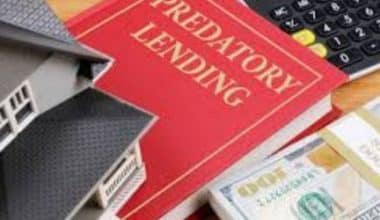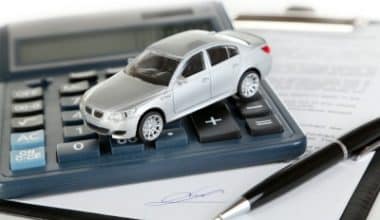Many recent graduates are stuck paying off student loans while trying to save for a house, pay their bills, and start a family. This goes against the opinion of some experts that a good education is not worth anything. Most federal loans have a 10-year repayment period, but there are other options that give you 30 years to pay them back. Try these best ways to pay off student loans quickly
Best Way to Pay off Student Loans
Nobody likes having to pay back student loans. It could make it difficult for you to manage your money and prevent you from getting the most out of it.
However, increasing your student loan payments is not always a wise option. Review several repayment options to settle your debt sooner if you so desire, and consider the circumstances in which doing so might not be the best course of action.
Paying more than the required minimum payment is the best way to pay off student loans quickly. The more you pay off, the less interest you’ll pay in total. Here are the 11 best ways to pay off student loans.
#1. Make a Larger Contribution Than the Required Amount
The fastest and most effective way to pay off your student loans is to pay more. However, sometimes it’s easier to say than to do.
You don’t have to spend twice or thrice as much; you might be able to afford to pay just $20 or $50 more per month instead. Do everything that is possible! Any additional payment you may make can speed up the repayment of your student loan debt. Make sure that your loan servicer is putting your extra payments toward the loan’s principal. And as your circumstances permit, gradually raise the additional payment you’re making.
#2. Avoid Specific Repayment Strategies
Income-based repayment schemes may help you avoid federal loan default if you’re having difficulties paying. If you have the means to pay off your debts faster, repayment programs can really hurt you.
#3. Make the Most of Your Position
In some instances, your day job could also assist you in paying off your debt. Many positions provide student loan forgiveness in exchange for performing services. Check to see if your career goals fit the requirements for each forgiveness program. Some people who work for the government, like doctors, lawyers, and nurses, as well as some people who work for federal agencies, non-profits, and the auto industry, may be able to get help with or get rid of their student loans.
#4. Think About Consolidating Your Student Loans.
Refinancing student loans is becoming more and more common for people who have good or great credit but have high interest rates.
When you refinance, you can combine your student loans into one debt by getting a new loan from a private lender and using the money to pay off your old loan. Many people can get their interest rates lowered because they are now better off financially than when they first got the loan.
#5. Benefit From Tax Credits and Deductions
For students and recent graduates, two forms of school-related tax deductions can help lower their tax obligations. tax deduction for student loan interest
#6. Sign up For Autopay
Many loan servicers may reduce your interest rate by 0.25% if you sign up for automated payments. Although this is a tiny sum, over the course of your loan, it can add up to significant savings.
Additionally, setting up autopay is often a smart idea, as it reduces the possibility that you will forget to make a payment and end up in financial difficulty. If your servicer offers any interest rate breaks that you can take advantage of, ask them about them.
#7. Use Any Money You Find.
People occasionally have a claim to money or assets that they haven’t claimed or have forgotten about; in these situations, the money is referred to as “found money” and can be claimed. If you are able to get money this way, you can use it to pay off your student loans.
Unclaimed property is more typical than you may realize. The National Association of Unclaimed Property Administrators estimates that one in ten people have leftover assets worth billions of dollars that are being held by state or federal treasuries (NAUPA).
You may, for instance, assert the following:
- Savings or checking accounts
- Stocks Security deposits for utilities
- Payments from insurance or refunds
- not yet cashed dividends, wage checks, or bonuses
You can seek up any lienholder to which you might be liable by using the land title office of your state or a multi-state database.
#8. Reduce Your Spending
Reducing your monthly expenditure wherever you can is the last thing you can do to actually start making progress toward paying off your debt.
Find any extra money in your budget that you can put toward your student debts, whether it be $50 less per month because you cut the cable or $200 less because you stopped going out to eat.
#9. Whenever Possible, Make Additional Payments.
Consider making extra payments in addition to increasing your monthly payment. If you have additional money, this can be especially simple.
#10. Pay Your Bills Every Two Weeks.
Paying your bills every two months is another clever approach to making extra payments and getting rid of your debt. Simply divide your charge in half and pay it every two weeks instead of once a month.
Despite the fact that it may not seem like much, this technique adds one more payment to your loans per year. That can really matter, particularly if you’re paying down a sizable sum.
#11. Benefit From Your Grace Time.
Many student loans have a grace period, which means that once you graduate or drop below the minimum enrollment requirement, you won’t be forced to make payments for a specific amount of time. As an illustration, the majority of federal student loans have a six-month grace period.
Still, keep in mind that, depending on the type of student loans you have, interest may continue to add to your debt while you are in school, during your grace period, and when your payments are put on hold or put off. This is referred to as “capitalization,” and it could happen if you don’t make payments to cover the interest during these times.
How Do Unsubsidized Student Loans Work?
An unsubsidized loan can be obtained without having to meet any income requirements. Graduate schools can also benefit from using unsubsidized loans.
While you are a student, interest on unsubsidized loans continues to accrue. The interest is capitalized, or added to your total loan sum, at the end of your grace period. The interest rate is 4.99% for student loans disbursed between July 1, 2022,, and June 30, 2023.
You can pay the interest while you’re in school to prevent it from going toward your loan. Your loan balance will go up if there are any interest payments still due. And when you pay off your debt, you’ll also have to pay interest on the interest.
What Is the Fastest Way to Pay Down Student Loans?
Here are some of the fastest ways to pay off your student loans if you’ve determined that this is the best course of action for you:
- Pay more than the required minimum: Making extra payments on your student loans might help you reduce the principal debt and pay them off more quickly. A student loan calculator can be useful if you’re wondering how much time you could save by making a greater payment.
- Start a side business: Look for opportunities to make extra money to go toward your school loans. Take up babysitting jobs, driving jobs with Uber or Lyft, online clothing sales, or plasma donations, as a few examples.
- Pay biweekly rather than monthly: By paying your student loans bimonthly, you’ll end up making 26 half-payments in a year. As a result, instead of making 12 full payments on your loans each year, you’ll make 13.
Is It Worth Paying off Student Loan Early?
Yes, it is worthwhile to pay off your student loans early. Paying off college debt early may seem liberating, but be sure it’s the best option for you. Pay off debts with the highest interest rates first since student loans have low-interest rates.
We also advise against giving up retirement or emergency funds in order to pay off school loans. However, paying off your student loans early can make a lot of sense if you already have a sound financial strategy in place.
Do Student Loans Go Away After 7 Years?
The student loans themselves will stay on your credit reports and in your life until you pay them off, even though unfavorable information about your student loans may stop appearing on them after seven years. The only way to get rid of your student loan debt is to ask for it to be forgiven and, if needed, use the alternative payment options to help you pay down the amount you owe.
Should I Pay Off My Student Loans in Full or Monthly?
Even though paying off all of your student loans may be good for your finances, it may not be the smartest thing to do. The money could be saved for retirement, used to pay off higher-interest debt, or put into a large emergency fund. Depending on your financial condition and other debts, paying off your student loans all at once may be a wise decision.
Conclusion
Not that paying off student loans is simple, mind you. They aren’t. Having debt, including student loan debt, can feel overwhelming, but it is possible to pay it off.
You must take on your student loans head-on if you want to pay them off as soon as possible. There are several ways to manage your debt more effectively, but the worst thing you can do is nothing.
If you are having trouble repaying your federal or private student loans, DePaulo says that you shouldn’t ignore the problem or assume there are no options. In order to discuss your situation and attempt to establish a plan to get back on track, the suggestion states that you should “get in contact with your lenders.
Related Article
- What Is A Direct Unsubsidized Loan? All You Need To Know
- Top Insurance Broking Companies in 2023
- WHAT IS A FINANCE CHARGE? Overview, How it Works, and How to Calculate
- CONSUMER LOANS: Definition, Types & Rates






